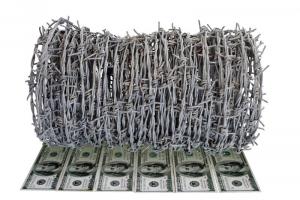What happens when the Bush tax cuts expire?
Michael T. Burr is Fortnightly’s editor-in-chief. Email him at burr@pur.com
While putting my thoughts together for this editorial, I was tempted simply to re-publish the text from my October 2010 column, “Dividend Debacle.” That piece could stand nicely in this space with just a few changes—namely, today we’re approaching a presidential election, not the mid-terms. But aside from that, Congress again is embroiled in another hyper-partisan food fight that threatens to blow up into a fiscal crisis. And once again dividend-paying companies like utilities are caught in the crossfire.

However, since 2010 two things have happened that alter the tax-policy calculus. First, the Occupy movement seized public attention away from the TEA Party’s fiscal-responsibility agenda and turned it toward the cause of economic fairness. Then, this year the Republican party chose for its presidential ticket Mitt Romney—historically a political moderate, yet vulnerable to being defined as a fat cat. With his equity-fund background; his wife’s multiple Cadillacs; and his dismissive remarks about a certain 47-percent of Americans, Romney arguably has put some members of Congress in a position where they can’t vote to extend the Bush-era tax cuts, even if they want to, because doing so would add ammunition to the class warfare that’s come to dominate the budget debate.

